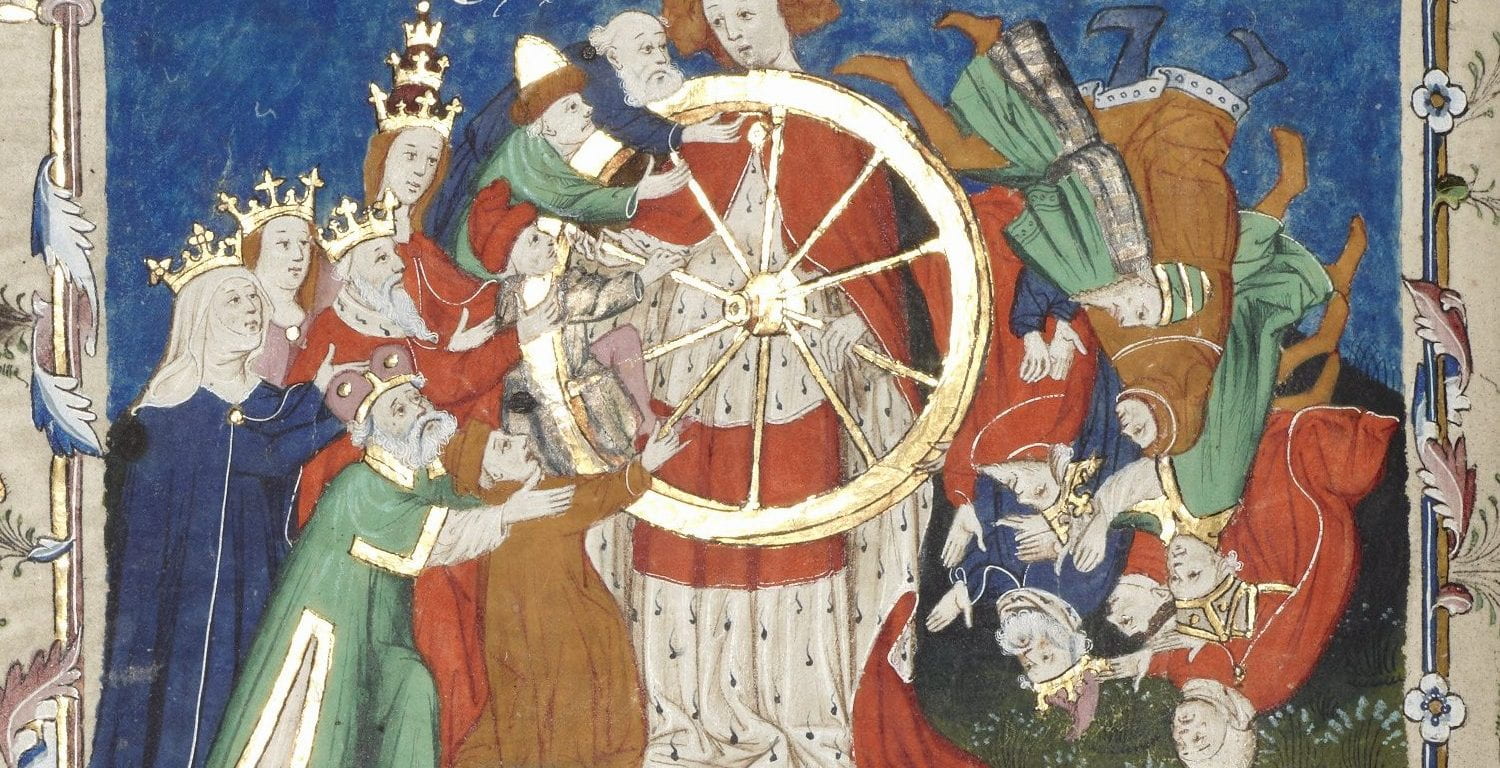By Faryn Thomas, Jennifer Morse, Joseph Marques, and Robert Carhuayo
If evil men have lost their human nature (118), do they still have a will in them left that drives them towards the good (110)?
- Lady Philosophy explains to Boethius that “any human action presupposes two things: will and ability” (109). She then goes on to say “that the whole effort of man’s will, which is vital in his activities, is in the direction of happiness”, with happiness being the “good itself” (110). Thus, a human’s will is always working towards the good. However, later Lady Philosophy also says that because “everything, because it exists, is good” and since evil men have fallen from goodness, that they “cease to exist, having by their wickedness lost their human nature” (118). Does this mean that evil men have also lost these two qualities essential to human action: “will and ability,” as lady philosophy seems to suggest earlier that these are essential parts of human nature? And if so, then does that mean that evil men no longer have a will and ability and are no longer working towards the good, having lost their will that requires them to do so? Or is this “will and ability” separate from what lady philosophy describes as human nature, and thus evil men still have a will and ability?
- Given the fact that the idea of “human nature” is a central part of Boethius and Lady Philosophy’s argument, it is interesting that “human nature” is only mentioned once in the text. What aspects of the human experience qualify as human nature? Is it universal? Why is it worrisome to lose human nature?
- Lady Philosophy says that “whatever falls from goodness ceases to exist, and that evil men cease to be what they were, having by their wickedness lost their human nature, although they still survive in the form of the human body.” (118). This (and the multiple paragraphs that follow), imply that wicked men are no longer human in any sense but physical and are nothing but animals. If they are mentally and spiritually animals, with no humanity left, do they have a soul in any sort of meaningful sense? (Christian theology traditionally states that only humans have souls and free will.) But Lady Philosophy also says explicitly that the wicked face punishment after death (ie, hell). “‘But let me ask if you think there are punishments for the soul after the death of the body.’ ‘Yes, there are’” (124). This would imply that despite what Lady Philosophy says, even wicked humans still have some part of human nature that distinguishes them from animals, because after all, dogs don’t go to hell. So for Boethius, what is that essential human nature that is still preserved?
- Lady Philosophy says “that the wicked are all the more unhappy as their desires are fulfilled” (121), and that punishment being brought upon them brings them happiness. This then implies that the wicked have some will to pursue happiness (the good) still, in the form of punishment. Further on, she elaborates that their desire for this punishment originates from guilt, suggesting that the wicked still have a conscience within them to know the difference between good and bad, understand they are doing bad, and desire justice to be brought against themselves. “Those who have done wrong should not be prosecuted with outrage and anger, but should be treated with kindness and sympathy as if they were sick men who could have their guilt lessened by punishment” (127). Given these arguments by Lady Philosophy, it would appear that the aforementioned human nature that has left the wicked does not include the will, nor the conscience. What then has been taken away from the wicked, which lady philosophy refers to as human nature?
Boethius. The Consolation of Philosophy. Translated by David R. Slavitt. Cambridge, MA: Harvard University Press, 2010.
Image: Detail of a miniature of the Wheel of Fortune with a crowned king at the top, from John Lydgate’s Troy Book and Siege of Thebes, England, c. 1457, London, British Library, Royal 18 D. ii, f. 30v.

Artists are known to turn to nature if they feel the burnout of their jobs. This is because nature helps in making them feel alive.
The investigation of “Boethius and Human Nature” by DANTE’S #1 FAN offers an interesting look at the philosophical issues raised by Boethius. The article highlights the complexity and importance of Boethius’ investigations into human nature while also underlining their ongoing relevance.